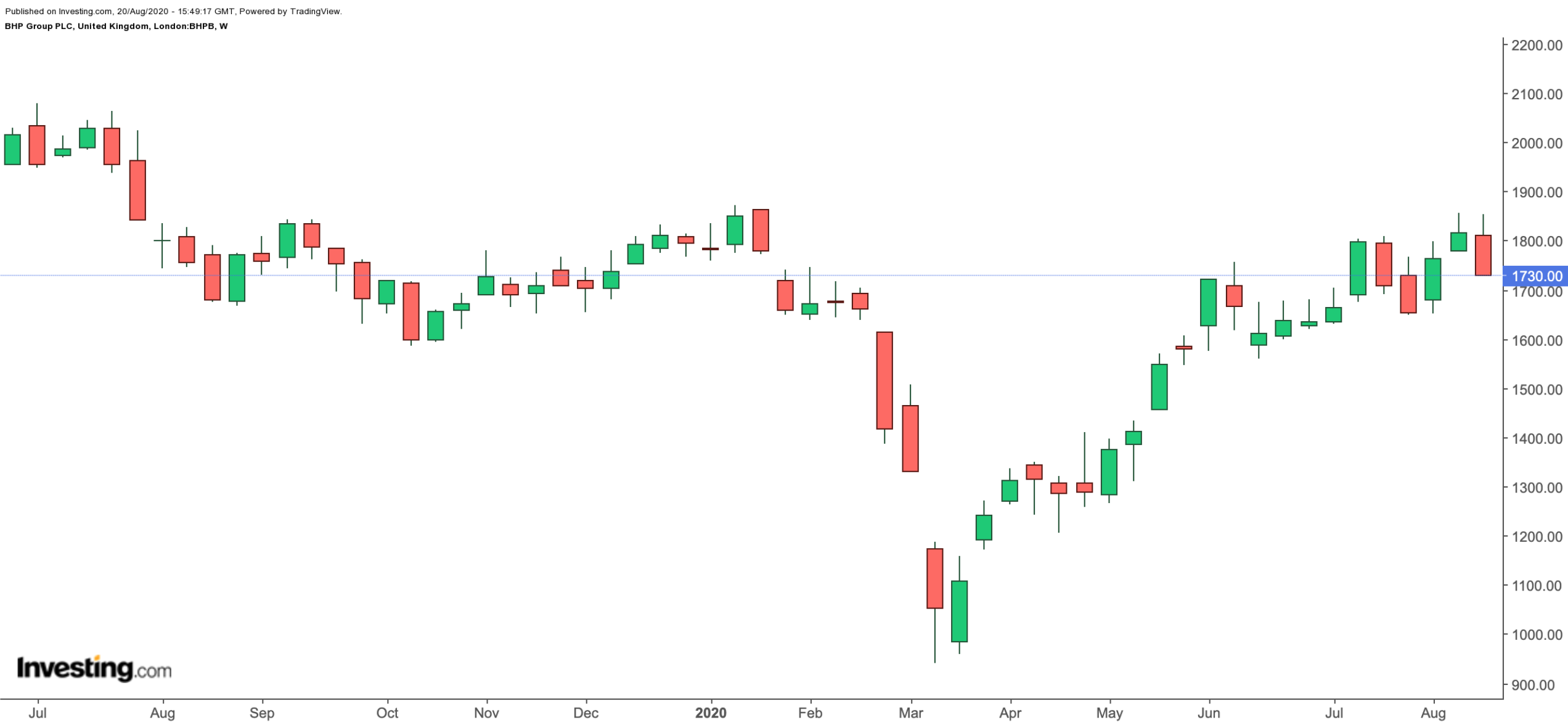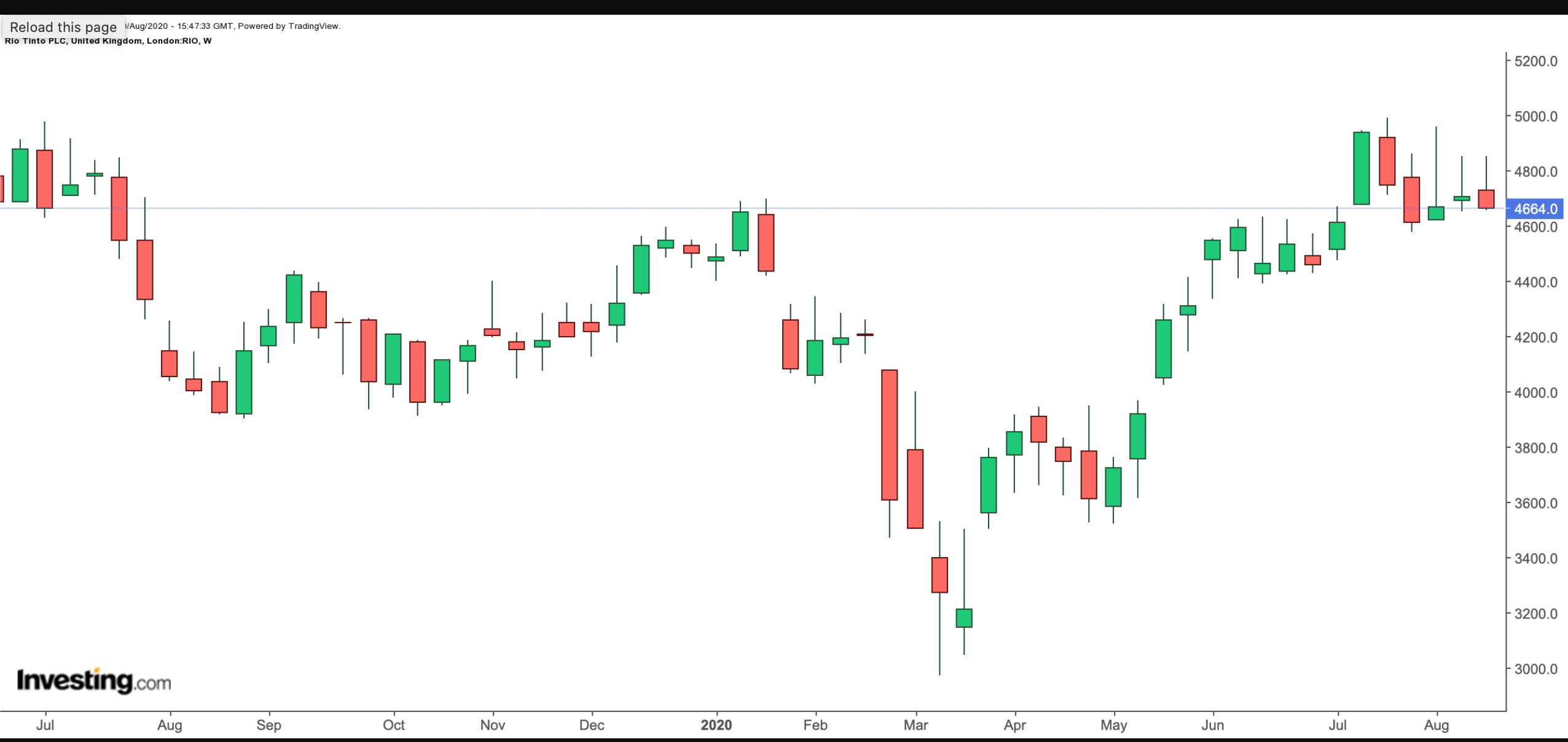Two of the largest metals and mining companies in the world—BHP Group (LON:BHPB) (NYSE:BHP) and Rio Tinto (LON:RIO) (NYSE:RIO)—have had stellar run-ups in share prices since early spring.
Markets have been increasingly volatile in the past few days, leaving investors wondering if it is time to ring the cash register. So, which one of these two FTSE 100 heavyweights could be a better buy as we approach the last quarter of the year? Let's take a closer look.
BHP
Headquartered in Melbourne, Australia, BHP has diversified operations in four segments: coal, copper, iron ore and petroleum.
It purchases and operates large long-life commodity-producing resource assets, like coal mines or iron quarries. Its portfolio of assets, which is considered among the highest quality in the world, has been generating significant free cash flow.

On Aug. 18, the group released its results for the year, which ended June 30. Analysts were not impressed with the lacklustre figures, which showed lower annual revenue and profit than expected. Net operating cash flow dropped by 10% year-over-year, while net debt rose 28% to more than $12 billion (or £9.14 billion).
Investors also raised eyebrows as the board trimmed the full-year dividend by 10%. It announced a final dividend of 55 cents per share, which meant the total payout in 2020 stands at $1.20 per share. In 2019, it was $1.33.
Management highlighted challenges posed by the COVID-19 pandemic as well as the continuing volatility in commodity prices. The decline in net operating cash flow reflected weaker commodity prices in coal and petroleum, partially offset by stronger iron ore prices. Social unrest in Chile was also one of the points covered in the report.
Year-to-date, bottom lines of stock are about flat, hovering at 1,730p (US$55). Forward P/E and P/S stand at 13.59 and 3.33, respectively. Given the increase in price since March and the mediocre results earlier in the week, we expect BHP shares to come under pressure. A potential decline of 7-10% in the stock price would make the shares attractive for long-term portfolios.
Rio Tinto
British-Australian multinational metals and mining corporation, Rio Tinto also owns several world-class assets across several different commodities.

It has generated strong free cash flow over the last few years and returned the majority of it to shareholders through dividends and buybacks. Although the board cut dividends in February, its dividend yield stands at 6.1% (8.7% in the U.S.).
On July 29, the group released half-year results. A 7.3% increase in iron ore production was one of the highlights of the report. Iron ore, which accounted for about 90% of profits, saw strong demand from China. However, in the first half of the year, there was weak global demand for aluminum and a decline in diamond sales. Finally, copper production remained almost flat. Nonetheless, management reconfirmed the 2020 production and cost guidance.
So far this year, RIO stock is up about 3%, hovering at 4,664p (US$61.50). Forward P/E and P/S stand at 10.52 and 2.86, respectively. We also expect short-term profit-taking in the shares, which could push it toward the 4,300p-level (US$57.50).
Bottom Line
While it’s almost impossible to completely avoid the impact of an economic recession on an equity portfolio, it is possible to minimize it by buying strong stocks that pay regular dividends.
Despite the recent dividend cut by BHP and an earlier cut by RIO, both companies offer passive income to shareholders. Also, they are top diversified miners with high-quality assets. However, volatility in commodity markets affects the prices of these resources.
Since the last financial crisis of 2008-‘09, commodity cycles have become mostly China-driven. Therefore, if the coming months show a decline in this Chinese demand, these companies’ bottom lines may also be affected.
After the U.S., China is the world’s second-largest economy. So markets pay attention to any news headlines that might have a China component. However, if history is any guide, markets tend to recover from headlines that trigger short-term profit-taking. In the long-run, global infrastructure spending is likely to increase, driving up demand in key commodities.
In addition, international companies like BHP Group or Rio Tinto can be particularly attractive for UK-based investors because their fortunes don’t depend on the UK’s economy. As such, they could provide immunity from any further turbulence that there may be due to the continuing trade negotiations with the European Union.
Although we’d first consider an investment in RIO over BHP, any potential price drop in either stock could be seen as an opportunity to buy the shares.
